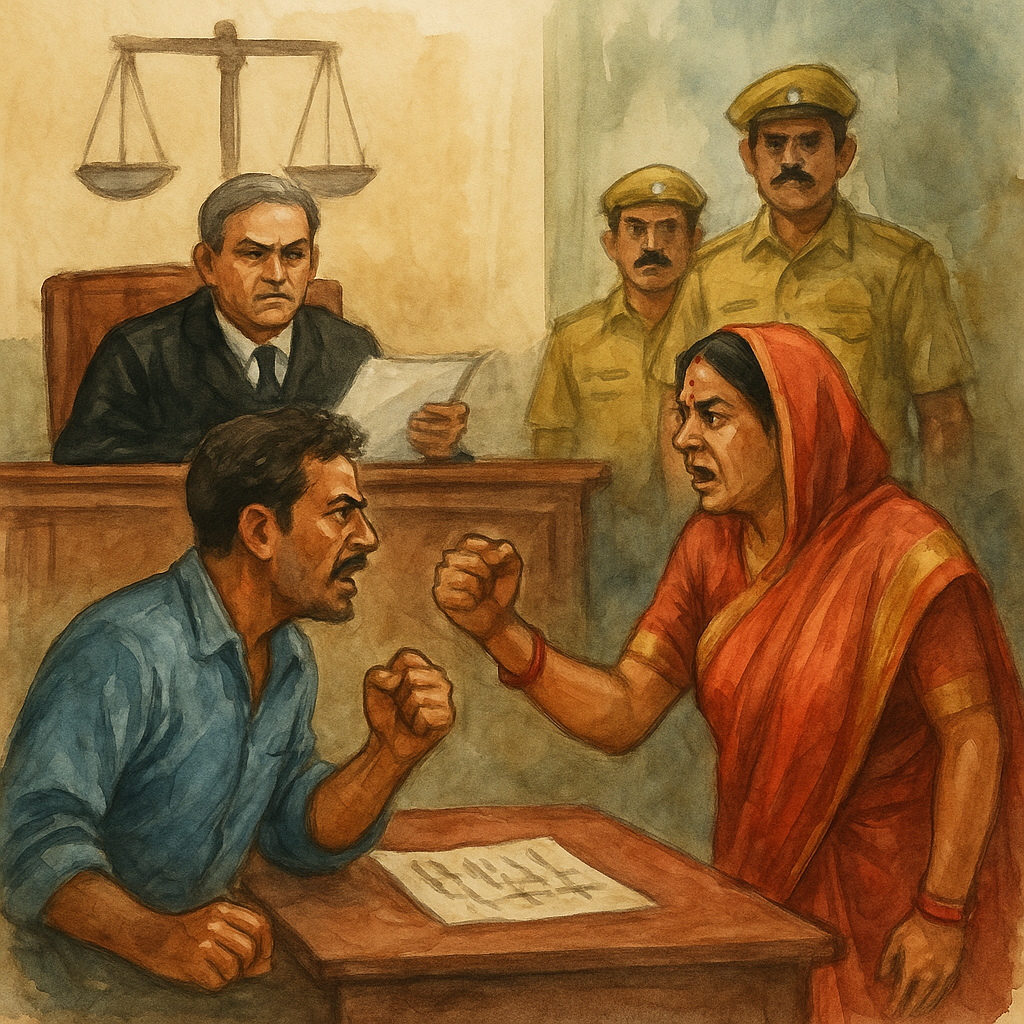In a recent judgment, the Patna High Court dismissed a writ petition challenging the recounting of votes ordered in a Panchayat Mukhiya election. The Court found that the trial court had sufficient material to justify a recount, including discrepancies in statutory election forms and specific allegations of vote manipulation. This case highlights how recounts are judicially scrutinized and permitted only under strict conditions.
Simplified Explanation of the Judgment
The case involved a dispute over the election results for the post of Mukhiya (village head) of Gram Panchayat Raj, Maura Jharkaha in Shankarpur Block, Madhepura district. The petitioner, who was declared elected, had won by a narrow margin of 10 votes. The second-highest polling candidate (respondent no. 7) challenged the results through an Election Petition, citing electoral malpractices and irregularities in the vote count.
The Munsif (trial judge) hearing the election petition directed a recount of votes based on visible overwriting and corrections in statutory Forms 20 (Part I and II), which record vote details. This decision was challenged by the petitioner in the High Court through a writ petition under Article 226 of the Constitution.
The petitioner argued that the trial court’s order was flawed because:
- No finding was recorded on whether the discrepancies materially affected the election outcome.
- The trial court did not properly consider evidence or legal standards.
- The order relied only on allegations without thorough judicial reasoning.
However, the High Court found that the Munsif had examined the original documents and identified several instances of suspicious alterations specifically relating to the petitioner. The court emphasized that the decision to recount ballots must not be taken lightly but can be justified when:
- The election petition contains detailed material facts.
- There is prima facie evidence suggesting counting mistakes.
- The court believes a recount is essential to determine the true electoral outcome.
The High Court affirmed that all three conditions, based on precedents like N. Narayanan v. S. Semmalai (AIR 1980 SC 206), were met in this case. It also clarified that the judgment in Beauty Patel v. Indira Devi (2019 2 PLJR 903) cited by the petitioner did not apply here because that case dealt with wrongful rejection of ballots—not irregularities in counting and documentation.
Ultimately, the writ was dismissed, and the recount ordered by the Munsif was upheld as lawful and justified.
Significance or Implication of the Judgment
This ruling strengthens legal accountability in local elections by reinforcing that recounts are not arbitrary but are permitted when backed by credible evidence and judicial reasoning. For voters and candidates in Bihar’s Panchayati Raj system, the decision ensures transparency and trust in electoral outcomes.
The judgment also sends a message to election officials that procedural integrity—especially in maintaining official records—is critical. Any manipulation or lack of clarity in election documents may lead to judicial intervention.
Legal Issue(s) Decided and the Court’s Decision
- Whether recounting of votes can be ordered based on overwriting in statutory forms
✔ Yes, if discrepancies are material and documented with prima facie evidence. - Whether the Munsif’s recount order was legally justified without framing issues or taking full evidence
✔ Yes, as the original documents showed credible discrepancies directly impacting the petitioner’s vote count. - Whether recounting order violated legal precedents or election law
✔ No, the order followed the three-fold test laid down by the Hon’ble Supreme Court.
Judgments Referred by Parties
- Beauty Patel v. Indira Devi, 2019 (2) PLJR 903
- Chandrika Prasad Yadav v. State of Bihar, (2004) 6 SCC 331
Judgments Relied Upon or Cited by Court
- N. Narayanan v. S. Semmalai, AIR 1980 SC 206
- Bhabhi v. Sheo Govind, 1976 Supp SCR 202
Case Title
Rajendra Prasad Yadav v. The State of Bihar & Ors.
Case Number
CWJC No. 23889 of 2019
Citation(s)
2020 (1) PLJR 541
Coram and Names of Judges
Hon’ble Mr. Justice Ahsanuddin Amanullah
Names of Advocates and who they appeared for
- For the Petitioner: Mr. S. B. K. Mangalam
- For the State: Mr. Ashok Kumar Gupta, AC to GP 10
- For the State Election Commission: Mr. Amit Shrivastava with Mr. Sanjeev Nikesh
- For Respondent No. 7: Mr. Nand Kumar Sagar, Mr. Prashant Sinha, Mr. Md. Modassir Shams, and Mr. Md. Sufian
Link to Judgment
https://patnahighcourt.gov.in/viewjudgment/MTUjMjM4ODkjMjAxOSMxI04=-vdkgRHdFYWk=
If you found this explanation helpful and wish to stay informed about how legal developments may affect your rights in Bihar, you may consider following Samvida Law Associates for more updates.









